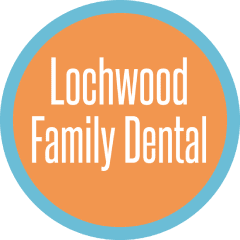If you have a chipped, cracked, or broken tooth, you need a quick fix for your smile. Dental bonding is a cosmetic dental treatment that fixes problems like tooth discoloration and damage. Bonding treatment uses biocompatible, tooth-colored resin materials to cover cosmetic imperfections. At Lochwood Family Dental, we provide teeth bonding treatment to patients in Dallas, TX.

Benefits of Teeth Bonding
Teeth bonding in our Dallas, TX office offers many benefits. Bonding treamtent is:
- Quick and Painless: The procedure typically takes 30 to 60 minutes per tooth. Most patients find the process to be comfortable. We need little to no anesthesia during the treatment.
- Cost-Effective: Teeth bonding is less expensive than other cosmetic dental procedures like veneers or crowns. It provides a budget-friendly option for improving your smile. In most cases, you only need bonding for one or two teeth.
- Non-Invasive: Unlike veneers or crowns, teeth bonding requires minimal to no removal of tooth enamel. This preserves the natural structure of your teeth. We will only gently prepare your tooth so the bonding material adheres properly.
- Versatile: Teeth bonding can fix various dental issues, making it a great solution for many patients. Whether you have chipped, cracked, discolored, or gapped teeth, bonding can effectively address these concerns.
- Immediate Results: Unlike some dental procedures that may require multiple visits, teeth bonding often provides immediate results. You can walk out of our office with a renewed smile in just one visit.
Candidates for Teeth Bonding
If you are interested in bonding treatment but are unsure if you qualify, we can help. You may be a good candidate for tooth bonding if you have the following:
Chipped or Cracked Teeth
If you have a chipped or cracked tooth, bonding can help restore its appearance and function. The resin material matches the color of your natural teeth, making the repair unnoticeable. Chipped teeth can result from accidents, sports injuries, or biting down on hard objects.
Chipped or cracked teeth can also cause discomfort or sensitivity. Teeth bonding can address these issues promptly, reducing discomfort and improving the overall health of your teeth.
Stained Teeth
Tooth stains can impact your smile and confidence. Teeth bonding can cover stains to give you a brighter, more uniform smile. Whether your teeth are stained due to coffee, tea, smoking, or other factors, bonding can effectively conceal these discolorations.
Teeth whitening treatments are another option for addressing discoloration, but they may not be suitable for everyone. Dental bonding provides an alternative for those who may not achieve the desired results with whitening alone.
Tooth Gaps
Small gaps between teeth can affect the look of your smile. Teeth bonding can fill these gaps, ensuring a smoother and more aesthetically pleasing alignment of your teeth.
Gaps between teeth, or diastemas, can occur naturally or result from other dental issues. Regardless of the cause, teeth bonding offers a simple and effective solution.
By closing gaps between teeth, bonding enhances your smile and improves tooth function. Properly aligned teeth are easier to clean and maintain, reducing the risk of plaque buildup and gum disease.
Teeth Bonding in Dallas, TX
Before your treatment, we will examine your smile to determine if bonding is right for you. We may recommend other options if you have cosmetic issues in many teeth or all the teeth in your smile line. However, if you have small cosmetic imperfections, we will recommend bonding. The steps to treatment include:
Tooth Preparation
We will first prepare the tooth to begin a dental bonding treatment in our office. Tooth preparation ensures that the tooth-colored bonding material properly adheres to the tooth.
Your dentist will slightly roughen the tooth and apply a conditioning liquid. This helps the bonding material adhere better to the tooth. The roughening process is done using a gentle abrasive material that creates a texture on the tooth surface. This texture allows the resin to bond more securely, ensuring long-lasting results.
The, we apply conditioning liquid, also known as an adhesive or bonding agent. It acts as a primer to create a strong bond between the tooth and the resin material. If the tooth has a large fracture or break, we may also need to reshape it.
Resin Application
Once we prepare your tooth, we color-match your tooth to ensure the material is your desired shade. Then, we apply the tooth-colored bonding material to add structure to the tooth or change the tooth color.
We will shape the bonding material to ensure you can bite comfortably and naturally. This will replicate the shape and contours of your natural teeth as closely as possible. We can layer the resin to ensure a perfect fit and appearance.
Once we shape the tooth, we harden the bonded tooth with a curing light. Finally, we will trim, shape, and polish the tooth for a natural look.
Aftercare Tips
After bonding treatment, you can clean your bonded teeth like natural ones. Remember to use a soft-bristled toothbrush and gently brush in circular motions. Avoid toothpastes that contain abrasive ingredients because they can damage your bonded teeth and natural enamel.
Bonded teeth can stain, just like your natural teeth. Avoid foods and beverages like coffee, tea, and red wine. Smoking can also stain your bonded teeth, so it is best to quit smoking for the health of your teeth and gums.
If you do consume staining agents, try to rinse your mouth with water afterward. This helps to minimize the contact between the stains and your teeth. Using a straw when drinking staining beverages can also reduce their impact on your bonded teeth.
Regular dental checkups are essential to ensure bonding lasts. Visit us for a cleaning and exam twice a year.
During your regular checkups, we can assess the bonding material and make repairs or touch-ups. Professional cleanings help to remove plaque and tartar buildup, ensuring the health and appearance of your bonded teeth. Maintaining a schedule of regular dental visits is key to preserving the results of your teeth bonding and keeping your smile in top condition.
Tooth Bonding FAQs
Read answers to common questions about teeth bonding in Dallas, TX:
Does tooth bonding look natural?
When done by a skilled dentist, most people can’t tell which tooth has been bonded. Unlike some other dental treatments, bonding results look natural because we color-match bonding material to your desired tooth shade. We also mold the material into a natural shape and polish your bonded teeth for a high shine.
How does bonding compare to veneers?
Dental bonding is similar to veneers, but we often recommend bonding for tooth chips, fractures, breaks, and discoloration. Bonding can also be a more economical option if you need to treat a single tooth and do not want veneers.
Tooth bonding may not require as much tooth preparation as dental veneers if you do not have extensive damage. It also does not require as much treatment time because we do not need a dental lab to provide bonding treatment.
What foods can I eat with dental bonding?
You can eat most foods after teeth bonding treatment in our Dallas, TX office, but it’s a good idea to be cautious for the first 24 hours. Avoid hard or sticky foods like candies and nuts because they can damage the bonding material. You should also try to avoid very hot or very cold foods right after the treatment because your teeth might be a little sensitive.
Stick with soft foods and drink water to keep your bonding looking great. Over time, as the bonding settles, you can eat normally again but be careful with anything that could stain the bonding, like coffee, tea, or red wine.
Can bonding fix worn teeth?
Yes, we may recommend this treatment if you have slight tooth wear from grinding, chewing, or other factors. This treatment can improve the appearance and function of worn teeth. Bonding can make them look natural and feel more comfortable when you bite or chew. However, if you have severe wear, we may recommend other treatments like crowns.
Can teeth bonding be removed or replaced?
Yes. Since bonding is not permanent like veneers, our dentist can carefully remove it without damaging your natural tooth. If you choose to replace the bonding with veneers or another treatment, we will make sure the new treatment fits your smile and looks natural. Talk to our dentist about your options to ensure the best results for your teeth.
How long is dental bonding treatment?
Dental bonding is a same-day treatment. Most of the time, you can get it done in just one visit to the dentist. For a single tooth, the whole process typically takes about 30 to 60 minutes. If you’re getting multiple teeth bonded, it might take longer – maybe 1 to 2 hours total.
Does teeth bonding treatment hurt?
No, teeth bonding will not hurt. We will numb your teeth before we prepare them for the bonding material. While you may feel some sensitivity if you need to treat a chipped or worn tooth, this will fade. You can go back to your normal activities after treatment.
How much is tooth bonding?
Bonding is one of the most affordable cosmetic dentistry options. The cost of dental bonding can depend on how many teeth you need bonded and if you need to treat damaged teeth. Bonding is generally one of the less expensive ways to fix teeth compared to options like veneers or crowns. Other options often cost more per tooth.
Dental insurance can also cover part of bonding if you need it to fix a broken tooth. At Lochwood Family Dental, we accept most traditional insurance plans. We also accept CareCredit and Alphaeon.
Schedule a Consultation
If you want teeth bonding treatment, please call 214-343-9115. You may also request a dental appointment with us online. We will help you find the best cosmetic treatment for your smile. Please contact us if you have any questions about dental bonding or other cosmetic treatments. We’re here to help you.
